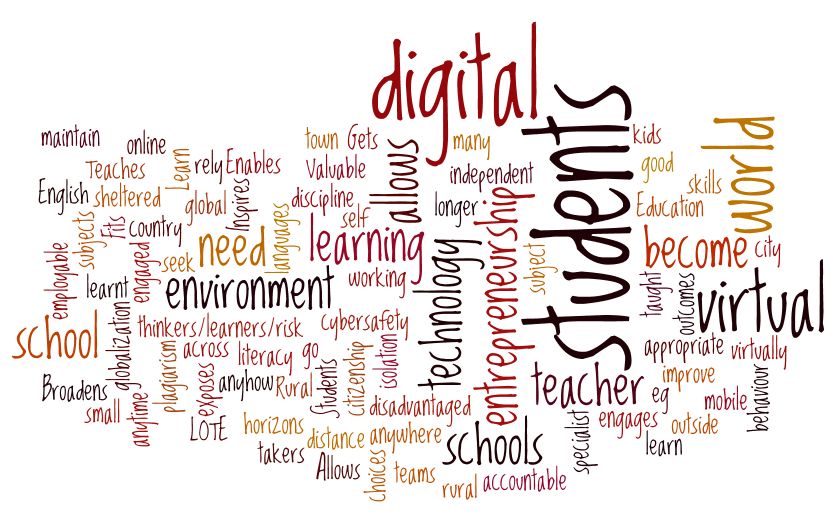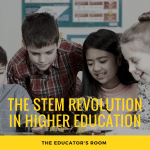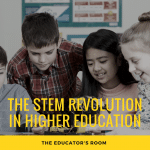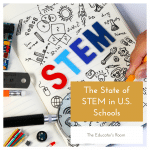“Don’t teach your children to read. Teach them to question what they read. Teach them to question everything.” –George Carlin
The Common Core State Standards in English Language Arts and Mathematics are about thinking, questioning, and higher level learning. These are passions I have and things I am excited to see happening in classrooms. In our digital age there are many resources you have at your fingertips to help you with these ideas. Here is a list of things you should explore for use in your classroom.
Common Core Resources
• Smarter Balanced Assessment Consortium
• Partnership for 21st Century Skills
• Depth of Knowledge (DOK) Levels
“Students must read widely and deeply from among a broad range of high-quality, increasingly challenging literary and informational texts. Through extensive reading of stories, dramas, poems, and myths from diverse cultures and different time periods, students gain literary and cultural knowledge as well as familiarity with various text structures and elements.” — ELA Anchor Standards.
Ask Deeper Questions
The idea is to have students ask deeper level questions in their reading. They should also read and compare a variety of text. Some tools to help with this task in your classroom include:
• Diigo
• Newspapers—The NY Times has great resources for teachers and many papers offer free classroom subscriptions.
“Students need to learn to use writing as a way of offering and supporting opinions, demonstrating understanding of the subjects they are studying, and conveying real and imagined experiences and events. They learn to appreciate that a key purpose of writing is to communicate clearly to an external, sometimes unfamiliar audience, and they begin to adapt the form and content of their writing to accomplish a particular task and purpose. They develop the capacity to build knowledge on a subject through research projects and to respond analytically to literary and informational sources.” — ELA Writing Standards.
Writing Standards
The idea is to have students research, write, collaborate, and share their works. Some tools to help with this task in your classroom include:
• Bubbl.us
• Google “Advanced Search” – Teach students how to refine their online searches to find more relevant and reliable information
•Ambiently.com–A discovery search engine
• Sweetsearch.com–A search engine for students
“Students must have ample opportunities to take part in a variety of rich, structured conversations—as part of a whole class, in small groups, and with a partner. Being productive members of these conversations requires that students contribute accurate, relevant information; respond to and develop what others have said; make comparisons and contrasts; and analyze and synthesize a multitude of ideas in various domains.” — ELA Speaking and Listening Standards.
Speaking and Listening Standards
The idea is to have students interacting, discussing, sharing, and listening to a variety of text, writing, and peer work. Some tools to help with this task in your classroom include:
• Audacity for voice recording (free download)
• Lit2Go
• Skype
“Students must gain control over many conventions of standard English grammar, usage, and mechanics as well as learn other ways to use language to convey meaning effectively. They must also be able to determine or clarify the meaning of grade-appropriate words encountered through listening, reading, and media use; come to appreciate that words have nonliteral meanings, shadings of meaning, and relationships to other words; and expand their vocabulary in the course of studying content.” –ELA Language Standards.
• Quizlet
• Wordle
• WordSift
• Word Central from Merriam-Webster
• Back in School from Dictionary.com
• 21 Digital Tools to Build Vocabulary
“The Standards for Mathematical Content are a balanced combination of procedure and understanding. Expectations that begin with the word “understand” are often especially good opportunities to connect the practices to the content. The second are the strands of mathematical proficiency specified in the National Research Council’s report Adding It Up: adaptive reasoning, strategic competence, conceptual understanding (comprehension of mathematical concepts, operations and relations), procedural fluency (skill in carrying out procedures flexibly, accurately, efficiently and appropriately), and productive disposition (habitual inclination to see mathematics as sensible, useful, and worthwhile, coupled with a belief in diligence and one’s own efficacy).” — Mathematics Standards.
The idea is for students to develop an understanding they can then use to apply in the practices to use tools and model while reasoning, thinking abstractly and constructing arguments for their reasoning. Here are some tools that can help in the classroom:
• Creately
• Gliffy
• Wixie
This is, yet again, a new era in teaching. Those who have been in education for a while know methods change regularly, but it is our responsibility to continue good practices and to teach effectively. Questioning, metacognition, and higher level thinking skills are all things our students can use in their life beyond the classroom walls. In this digital age we are able to bring the world to our students. Technology is a great way to engage students and the power we create by combining efforts and allowing for collaboration will reward our students and push their learning beyond our walls. The world is shrinking as it grows. Enjoy teaching our students to use their resources so they lead us well in the future. Enjoy the journey and check out these resources for even more information.[/fusion_builder_column][/fusion_builder_row][/fusion_builder_container]







Leave a comment